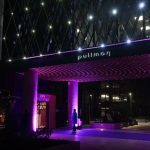The upgraded plant will comply with the latest environmental standards.
The Croatian Electric Company (HEP) has signed four contracts which are essential for the implementation of the project for new cogeneration block at the heating plant in Zagreb. The contracts in question cover loans from the European Bank for Reconstruction and Development (EBRD) and the European Investment Bank (EIB), as well as the construction and long-term maintenance which will be performed by the FATA S.p.A. company from Italy, reports Večernji List on July 26, 2018.
The loan agreements with the EIB and the EBRD total 130 million euro, of which the EBRD and a commercial bank syndicate will provide 87 million euro, while the EIB will approve a loan in the amount of 43 million euro. The EIB funding has received a guarantee from the European Fund for Strategic Investment (EFSI), which has been initiated by the European Commission and is better known as the Juncker Plan.
HEP says that the new high-efficiency plant, which will produce 150 MWe of electricity and 114 MWt of thermal power, will exclusively use gas as the fuel, and will be an environmentally acceptable and reliable source of power for Zagreb. The new cogeneration block – for the simultaneous production of electrical and thermal energy – will replace some of the obsolete units at the current plant located in the Trešnjevka neighbourhood.
“The new cogeneration plant will be exceptional in all aspects – environmentally acceptable thanks to state-of-the-art systems and environmental protection measures, a reliable source of heat for Zagreb and of electricity for the Croatian power network and, above everything else, a highly efficient energy system, since the efficiency level will reach 90 percent,” said Frane Barbarić, HEP’s general manager.
In line with the energy efficiency guidelines, which are part of the EU’s and Croatia’s energy strategies, the new plant will achieve significant savings in primary energy and will reduce emissions of CO2 and other pollutants.
“Given that the European Union is moving towards a cleaner and more sustainable economy, it is crucial to replace old power plants that cause pollution with those which are less harmful to the climate. This is what this project will do: generate energy for the citizens of Zagreb in a more sustainable way,” said Jyrki Katainen, the vice president of the European Commission in charge of jobs, growth, investment and competitiveness. He added that this project represents a part of the collective effort to modernize the energy supply in Croatia and contributes to the achievement of the EU’s climate objectives.
In the preparatory phase of the project, the necessary permits have been issued, and the plant should be completed by the end of 2021.
Translated from Večernji List (reported by Josip Bohutinski).







